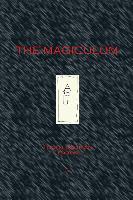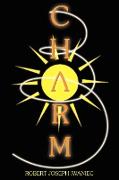Sin
BücherAngebote / Angebote:
This is a print on demand book and is therefore non- returnable. Berkouwer is known for the tone of praise and worship that runs throughout his entire theology. As he states in this volume, "The purpose of a song of praise is obviously that we should sing along and not get bogged down in extraneous and speculative problems. For the man who is mired deeply in problems can only relativize and disharmonize his song of victory." That statement is a key for understanding this truly remarkable book on the utterly somber and serious business of man's sin. Joy, doxology, and biblical piety are the earmarks of Berkouwer's discussion from cover to cover. He argues, in the light of Scripture, that there can be no meaning in the meaningless or sense in the senseless, or rationality in that which is intrinsically irrational. To say that there can be can only detract from the awfulness of sin and the magnitude of God's forgiveness. Therefore it can only impinge upon our piety. The proper response to sin is a true confession of my guilt, for the man who truly confesses is truly forgiven. Joy and doxology find place when sin is taken with a real, very biblical seriousness. From this vantage point the author rejects the notions of monism, dualism, and a demonological explanation for man's sin. He wants nothing to do with a "phenomenology of evil" which sees sin as self-evident. In the light of the salvation that has come we can only speak of our sins that remain as a riddle. Berkouwer's view is a wholesome foil to contemporary concepts that refers to man's "estrangement, " "alienation, " and "incompacity, " and have little or nothing to say about his guilt. He eschews the language of causality, since "self-exculpation dogs the heels of any explanation for our sin." His interests are biblical and doxological, and precisely therefore he denies the concepts of realism and federalism as developed in Reformed orthodox theology. "Original sin" is no datum that is "with us, " and is certainly no "alien guilt", much rather, it is known in our own involvement in sin. Nothing, not even faith, can shed a particle of light on the truly enigmatic character of evil. Thus piety and doxology unlock the door for understanding why Berkouwer rejects a number of false alternatives or problems in this book. Typical are the problems of monism and dualism, inactual and actual wills of God, the law and the gospel, cum verbo and per verbum, the wrath of God and his love, his justice and his mercy, Adam and Christ. God's wrath is seen in the service of his grace and not as the coordinate of his love: and precisely in his intolerance for sin the act of his mercy is revealed. In a similar way, we cannot discuss the law as the source of the knowledge of sin apart from the gospel, or the gospel apart from the law. We cannot see Adam apart from Jesus Christ. Insights abound in this volume, which is certainly one of the very best of Berkouwer's works.
Folgt in ca. 10 Arbeitstagen




